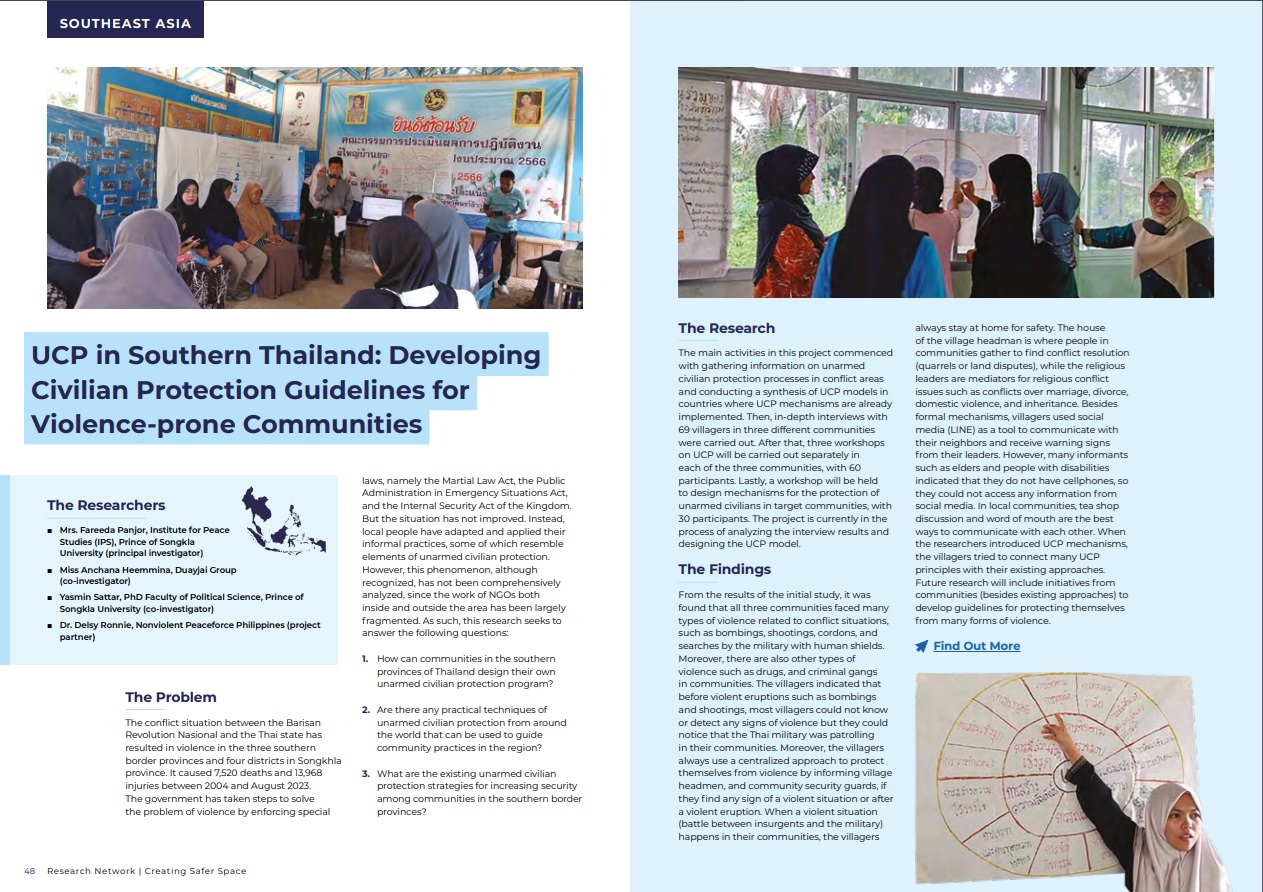
UCP in Southern Thailand: Developing civilian protection guidelines for violence-prone communities
The conflict in the Deep South of Thailand has lasted for over 18 years, with the state trying to resolve the issue militarily. This approach, however, has not ended the conflict. Unarmed civilian protection (UCP) is a tool that can be used to manage conflicts and help protect civilians in conflict areas. This research aims to develop guidelines for protecting civilians at the community level in the Deep South of Thailand and apply UCP theory and tools based on existing community infrastructures for protection.
The study will use a participatory research methodology and be conducted with a target group of three communities in Thailand’s southern provinces. With the participation and consent of all parties, the aim is to create a safer space in which communities pursue their own peace initiatives. The project team believe that the adoption of UCP mechanisms in the southern provinces of Thailand could also help to transform the use of securitisation and violent force by the state into the adoption of the nonviolent method to protect civilians. It will engage in discussions of UCP at the policy level to test this idea.

Research team
- Fareeda Panjor, Prince of Songkla University (principal investigator)
- Anchana Heemmina, Duayjai Group
- Yasmin Sattar, Prince of Songkla University
- Nonviolent Peaceforce Philippines (project partner)
Initial Results
Researchers have completed 80 percent of the project. We interviewed 69 target groups in three target areas as part of the research process and received preliminary survey results. The investigation discovered that the UCP mechanism is a novel idea that is not yet known in Thailand’s southern border provinces and that its potential to protect people is not widely accepted. Basic knowledge such as human rights concepts and an understanding of conflict and peace processes must be provided during the process of establishing the UCP mechanism in each community. Along with the mechanism design process, the research team offered about the UCP mechanism and basic understanding such as human rights and the peace process. Future initiatives will include collecting data from the field and assessing it with data from international research of UCP mechanisms.

